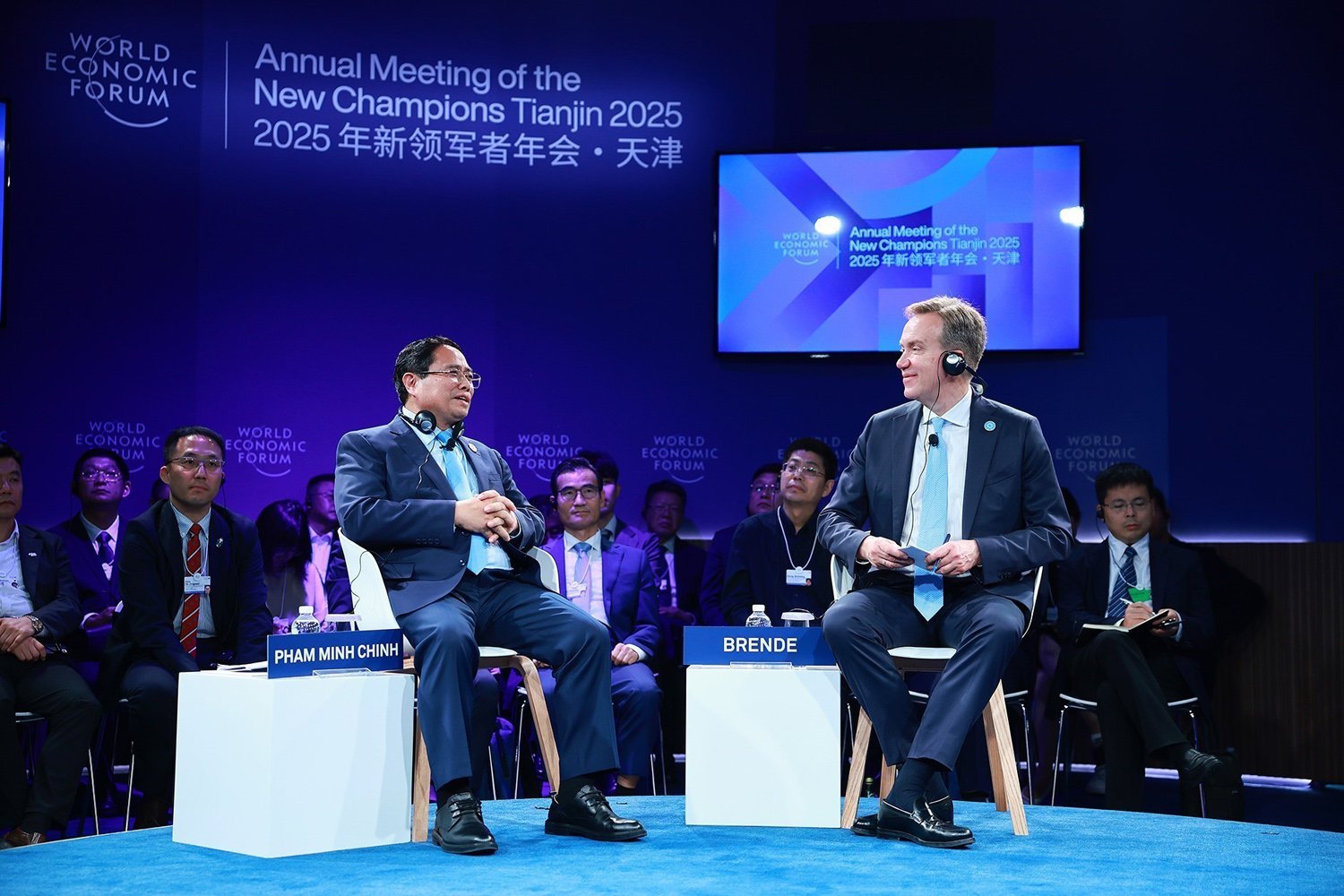
Economic diplomacy serves national development through directives of the Secretariat
In 2010, Directive No. 41-CT/TW, dated April 15, 2010, of the Secretariat “On strengthening economic diplomacy in the period of accelerating industrialization and modernization of the country”, was issued. The implementation of the Directive has created a positive change in economic diplomacy activities, contributing significantly to economic growth, enhancing Vietnam's international position and promoting the process of deep integration into the global economy.
However, the international and regional situation has witnessed profound and unpredictable changes, under the profound impact of geopolitical conflicts and complex trade wars, the impact of the Fourth Industrial Revolution, the explosion of digital technology and artificial intelligence (AI), the impact of climate change... are reshaping the world order and global economic structure. Notably, the COVID-19 pandemic has not only caused a health crisis, but also caused economic damage, disrupted the global supply chain, and posed an urgent need for adaptation and innovation in foreign policy in general and economic diplomacy in particular. In that context, competition between countries is not only limited to trade or investment market share, but also extends to the fields of technology, innovation capacity and the ability to respond flexibly to global fluctuations.
Vietnam, a country that is striving to transform its growth model towards sustainability, valuing quality over quantity, promoting economic diplomacy, improving the efficiency, proactiveness and flexibility of this work has become urgent. From the above context, on August 10, 2022, Directive No. 15-CT/TW of the Politburo on promoting economic diplomacy to serve the country's development until 2030 was issued. This is a document of strategic significance, highly directional, clearly demonstrating the Party's determination to comprehensively and substantially improve the quality and effectiveness of economic diplomacy in the new development stage of the country, focusing on tasks to successfully implement the goals, orientations for socio-economic development and foreign policy set forth by the Party.
Directive No. 15-CT/TW sets out the following key tasks: 1- Raising awareness of the role of economic diplomacy, identifying this as a central task and an important driving force for sustainable development, mobilizing external resources, and promoting international integration; 2- Expanding and deepening relations with partners, especially neighboring countries and strategic partners, through linking economic cooperation with other fields, such as politics, defense, and culture; 3- Promoting international economic integration, taking advantage of free trade agreements (FTAs), selectively attracting foreign investment, and developing science and technology; 4- Taking businesses and people as the center, supporting participation in the global value chain and improving competitiveness; 5- Strengthening research, forecasting, and updating world economic information to develop effective strategies; 6- Close coordination between foreign affairs fields, including party foreign affairs, state diplomacy and people's diplomacy, to strengthen the nation's overall strength; 7- Training and fostering a team of cadres working in economic diplomacy, ensuring they meet the requirements of the new situation.
To institutionalize Directive No. 15-CT/TW, our State has issued many documents on implementing economic diplomacy. On February 20, 2023, Resolution No. 21/NQ-CP of the Government issued the Action Program to implement Directive No. 15-CT/TW, which specifies the viewpoints, tasks and solutions of Directive No. 15-CT/TW, and at the same time closely linked with the Socio-Economic Development Plan for the period 2021 - 2025. Resolution No. 21/NQ-CP thoroughly grasps that economic diplomacy is a fundamental and central task of modern Vietnamese diplomacy, playing a role as a driving force for sustainable economic development. This work is closely related to the requirement to effectively mobilize external resources, serve the industrialization and modernization process, improve competitiveness and adaptability, contribute to building an independent, self-reliant economy and proactively integrate comprehensively, deeply and effectively into the international community. Then, on June 2, 2022, Decision No. 667/QD-TTg of 2023, of the Prime Minister, approving the Foreign Investment Cooperation Strategy to 2030 was issued, emphasizing the orientation of attracting selective and quality foreign direct investment (FDI), focusing on high-tech industries, advanced processing and manufacturing industries, clean energy and sustainable development. According to the report of the Foreign Investment Agency (Ministry of Planning and Investment), in 2024, realized FDI capital will reach about 25.35 billion USD, an increase of 9.4% compared to 2023 and the highest disbursement level ever (1) . The issuance of policies and guiding documents has contributed to raising awareness at all levels and sectors about the importance of economic diplomacy, creating a close coordination mechanism, ensuring unity and synchronization in the implementation of Directive No. 15-CT/TW, helping this activity become more and more substantial.
Promote effectiveness in practical implementation
The implementation of Directive No. 41-CT/TW and Directive No. 15-CT/TW has brought positive results to economic diplomacy.
One is to effectively exploit international cooperation.
Currently, Vietnam has established diplomatic relations with 194 countries in the world, established strategic partnerships and comprehensive strategic partnerships with 38 countries, creating an important foundation for expanding international cooperation in various fields. On that basis, Vietnam proactively and actively promotes economic content in foreign affairs activities, especially through high-level visits and contacts of Party and State leaders. In 2024, nearly 60 high-level foreign affairs activities were carried out, in which economic content emerged as a consistent focus, bringing specific and practical results, especially the Prime Minister's visit to China, Russia, India, Australia, New Zealand, South Korea, the United Arab Emirates (UAE), Qatar, Saudi Arabia, Hungary, Romania, and Dominica. Through that, more than 170 cooperation agreements were signed, laying the foundation for economic development.
Vietnam's foreign relations continue to be expanded, upgraded and upgraded in a practical and effective manner. Vietnam not only maintains and deepens traditional areas of cooperation, such as trade, investment, tourism, and labor, but also proactively explores new areas, such as technology, innovation, and semiconductor materials with the participation of the world's leading technology corporations... The growing presence of technology "giants" in Vietnam shows the effectiveness of economic diplomacy in attracting quality capital flows.
With emerging markets with much room for growth, such as Latin America, the Middle East - Africa, Eastern Europe, etc., Vietnam has actively implemented economic diplomacy activities to seek new directions, such as developing the Halal market. The official visit to the Gulf countries in late October 2024 by the Prime Minister of Vietnam marked an important turning point in establishing the Vietnam - United Arab Emirates Comprehensive Economic Partnership Agreement (VN - UAE CEPA), opening up great opportunities for Vietnam to export billions of USD worth of food to the Halal market.
Economic diplomacy has shown its role in handling situations arising in international trade relations. In April 2025, when the US announced plans to impose reciprocal tariffs on a number of Vietnam's key export products, Vietnam promptly launched high-level diplomatic efforts to clarify its stance, seek appropriate solutions, and limit the impact on domestic businesses and workers.
Directive No. 15-CT/TW was implemented synchronously from the Central to ministries, branches, socio-political organizations, and localities. In particular, the Ministry of Foreign Affairs plays a central role in coordinating economic diplomacy activities, taking advantage of the system of representative agencies abroad to establish channels connecting domestic enterprises with the overseas Vietnamese community. Typically, economic forums are held in many markets, such as the US, the European Union (EU), Japan,... where there are a large number of overseas Vietnamese with economic and intellectual potential. The annual Global Overseas Vietnamese Conference is a bridge to promote economic cooperation, creating a space for dialogue on strategic issues in national development (2) .
At the same time, the Ministry of Industry and Trade focuses on promoting the national trade promotion program, effectively exploiting the network of new generation FTAs of which Vietnam is a member, such as the Comprehensive and Progressive Agreement for Trans-Pacific Partnership (CPTPP), the Vietnam - European Union Free Trade Agreement (EVFTA), the Regional Comprehensive Economic Partnership Agreement (RCEP). Outstanding events, such as the Vietnam Goods Week in France, Japan, and the UAE, have created conditions for Vietnamese enterprises to access international markets and increase export value.
In terms of attracting resources, the Ministry of Planning and Investment has adjusted its important strategy towards improving the quality of FDI, focusing on high-tech and sustainable development sectors. The signing of cooperation agreements with large corporations such as Apple, Amkor, Lego, Samsung, etc. shows the attractiveness of Vietnam to international investors. In addition, the Ministry of Planning and Investment focuses on organizing large-scale conferences to promote dialogue and cooperation, specifically the event "Vietnam Global Manufacturing Forum 2024" in March 2024, bringing together hundreds of FDI enterprises to discuss digital transformation and the application of 4.0 technology in the production and supply chain in Vietnam. Along with that, traditional trade promotion activities such as the Vietnam International Trade Fair (VIETNAM EXPO) continue to be maintained and innovated in content and organization to better suit the context of international integration and digital transformation.
The above results show Vietnam's proactiveness in combining political diplomacy with economic diplomacy, synchronous coordination from the central to local levels, from ministries, branches to businesses and the Vietnamese community abroad.
Second, promote activities in multilateral forums.
In the context of increasingly fierce strategic competition, Vietnam's economic diplomacy plays an important role in proposing and implementing a flexible and agile foreign policy, thereby effectively utilizing external resources to serve economic development. Through active participation in multilateral organizations and forums such as the Association of Southeast Asian Nations (ASEAN), the Asia-Europe Meeting (ASEM), the Asia-Pacific Economic Cooperation Forum (APEC), the United Nations (UN), the World Trade Organization (WTO), etc., Vietnam not only increases its presence and affirms its position as a responsible member of the international community, but also takes advantage of opportunities to expand economic cooperation.
Economic diplomacy also plays a role in negotiating and signing bilateral and multilateral FTAs. To date, Vietnam has signed and participated in 17 FTAs, including CPTPP, Vietnam - EU FTA (EVFTA), RCEP, etc. Vietnam is continuing to promote negotiations for new FTAs, such as with the South American Common Market (MERCOSUR), the European Free Trade Association (EFTA), the ASEAN - Canada Agreement, etc. These agreements have and will contribute to opening up export markets worth hundreds of billions of USD, while creating momentum for reforming domestic economic institutions and improving the competitiveness of enterprises. Economic diplomacy also focuses on removing trade barriers.
Third, economic diplomacy contributes significantly to research, forecasting and policy advice for the country.
Vietnam's diplomatic missions abroad have played a pioneering role in foreign affairs, proactively monitoring and analyzing developments in the global and regional economic situation, as well as trade, investment and financial policies of partners; thereby providing accurate and timely information and advice to the Government. Vietnam's diplomatic missions abroad have also actively supported Vietnamese enterprises in understanding business practices and laws of host countries, penetrating markets, promoting investment and promptly handling difficulties arising in the context of increasingly complex international trade disputes. Thanks to the effective support from these agencies and the Vietnamese community in host countries, many large Vietnamese corporations, such as Viettel and FPT, have expanded their operations to potential markets in Africa and Eastern Europe. At the same time, international trade activities are actively deployed in both Europe and Asia, contributing to expanding export markets, attracting high-quality capital flows, and deepening cooperative relations with partners. Through this, an information sharing network is formed to serve the work of planning foreign economic development policies in a proactive, adaptive and strategic manner.
Fourth, contribute to strengthening the great national unity bloc and mobilizing resources of overseas Vietnamese.
Economic diplomacy has become an important tool to connect and mobilize the overseas Vietnamese community, especially the potential overseas businessmen and intellectuals, to create a practical support network for the country's development. With more than 5.3 million Vietnamese living in about 130 countries and territories, overseas Vietnamese are an important "bridge" in attracting investment, transferring technology and expanding the international market for Vietnamese goods.
Many programs, such as the "Forum connecting overseas Vietnamese with localities" or the "Conference to meet Vietnamese entrepreneurs abroad" have been organized, creating opportunities to spread knowledge, management experience and advanced technology back to the country. In 2024, despite the general impact of global economic fluctuations, the amount of remittances sent to Vietnam remained high, reaching nearly 16 billion USD, maintaining its position in the top 10 countries with the largest amount of remittances in the world, contributing significantly to socio-economic development (3) .
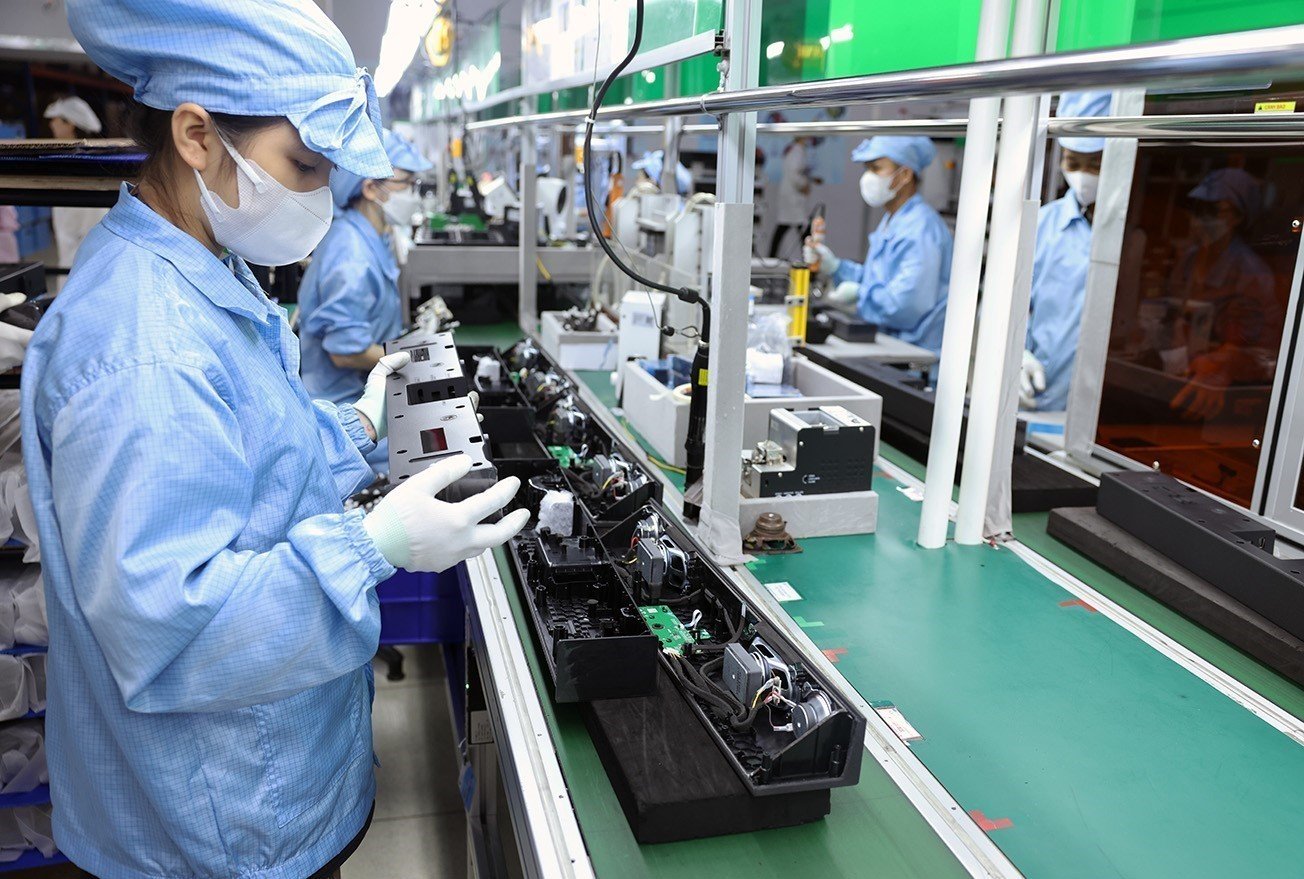
Promote the effectiveness of economic diplomacy
In recent times, despite many positive results, economic diplomacy still needs some adjustments to better promote its effectiveness in practice. Subjectively, the awareness and implementation capacity of agencies performing economic diplomacy are not uniform. On the other hand, many agencies are still confused and have not yet fully exploited the potential from upgrading relations with strategic partners. Political relations with key markets, such as the EU, North America and the Middle East, have been raised to new heights, but economic cooperation has not yet developed commensurate with potential and expectations. Trade promotion work has mainly focused on a number of large markets, leaving many other potential markets open. Operational efficiency still depends largely on the capacity and initiative of individual leaders of diplomatic missions and on-site staff, instead of a comprehensive, synchronous and systematic strategy. Research and strategic forecasting have not received due attention, while information on international economic integration has not been widely disseminated to localities and the business community, leading to many localities not proactively taking advantage of opportunities from FTAs. Another major challenge is the shortage of quality human resources, while the organizational structure of diplomatic missions has not been optimized to effectively support businesses.
The international context continues to pose significant demands and challenges for Vietnam's economic diplomacy. Although there have been lulls, the US-China trade tensions continue to be tense, affecting Vietnam's economy. In addition, the Fourth Industrial Revolution, with the application of scientific and technological achievements, such as the Internet of Things (IoT), AI, and automation, is shaping the global value chain, creating strong transformational pressure on developing economies.
In the country, in addition to advantages such as a stable political foundation, increasingly enhanced international reputation and extensive participation in new generation FTAs, effectively exploiting opportunities from these agreements still faces many obstacles. The main reasons are the limited competitiveness of domestic enterprises, the lack of synchronous mechanisms and policies to effectively exploit opportunities from FTA agreements, and the lack of digital infrastructure and high-quality human resources. This reality poses many challenges, but also opens up many opportunities for economic diplomacy.
In the context of the volatile world and regional situation, the new development stage of the country requires economic diplomacy to be implemented more strongly, synchronously and effectively than ever. This is not only an urgent requirement to maximize the mobilization of external resources, expand the space for cooperation and markets, but also a key solution to enhance Vietnam's position and competitiveness in the international arena. To realize that goal, it is necessary to focus on implementing the following tasks:
Firstly, continue to raise awareness of all levels, sectors, localities and the business community about the role, functions and tasks of economic diplomacy in the context of international integration. Practice shows that the lack of correct and complete understanding of economic diplomacy leads to a passive situation in implementation, leading to reduced work efficiency. Correct awareness helps to innovate thinking, ensuring that economic diplomacy activities are implemented methodically, promoting proactiveness and creativity. This is an important factor in the conditions of a market economy with increasingly fierce competition.
In addition, it is necessary to regularly disseminate and update relevant levels and sectors on policies and laws in the field of foreign economic affairs, commitments to international integration, as well as new emerging challenges. This is a requirement that needs to be implemented synchronously with a close and smooth coordination mechanism between domestic agencies and Vietnamese diplomatic representative agencies abroad, avoiding overlapping, passive or slow response to international fluctuations. When mastering this content, sectors, localities and enterprises will be more proactive, minimizing visible and invisible barriers in foreign economic activities, thereby improving efficiency and achieving more practical results.
Second, focus on consolidating the organizational structure and enhancing the coordination mechanism between domestic agencies and Vietnamese diplomatic representative agencies abroad. Establishing a synchronous and interconnected operating system between trade offices, economic offices, embassies and consulates creates a solid foundation for effectively implementing economic diplomacy tasks. In particular, representative agencies not only undertake political diplomacy functions, but also play the role of a strategic bridge in promoting investment and trade cooperation and supporting Vietnamese enterprises to expand their markets and improve their competitiveness globally.
Domestically, continue to improve the coordination mechanism between the Ministry of Foreign Affairs with ministries, branches, localities and the business community in the direction of streamlining, synchronization and efficiency in implementing economic diplomacy policies. Establishing inter-sectoral working groups and maintaining regular dialogue conferences between enterprises and state management agencies will contribute to promptly removing obstacles and barriers in international economic cooperation. Notably, since the beginning of 2025, the Ministry of Foreign Affairs has established the Department of Economic Diplomacy to replace the two Departments of Economic Synthesis and Multilateral Economics. This is an important step, not only perfecting the organizational structure of the Ministry of Foreign Affairs, but also creating a foundation to improve the effectiveness of economic diplomacy. With this new structure, economic diplomacy will have more favorable conditions to develop strongly, meeting the requirements of integration and development of the country in the new period.
Third, continue to perfect institutions and improve the business and investment environment through reforming administrative procedures, simplifying import-export processes, investment registration and business licensing, thereby creating a favorable, transparent and highly competitive environment for businesses. Currently, this problem is still a barrier not only for domestic enterprises, but also for foreign partners. When the barrier is removed, operational efficiency will be improved, bringing practical benefits to all parties. At the same time, this contributes to expanding the market and diversifying partners - key factors to improve Vietnam's competitiveness in the international arena.
In addition, the State needs to step up support for businesses to effectively exploit new generation FTAs, from accessing information, legal advice to connecting with strategic partners. In particular, encourage and create conditions for Vietnamese businesses to invest abroad to access advanced technology, improve management capacity, and improve the quality of human resources according to international market standards. Performing these two tasks well in a synchronized manner will help maximize the potential of the business community, thereby enhancing the competitiveness and overall strength of the economy.
Fourth, develop foreign economic relations in depth and diversify markets. Focus on consolidating and expanding cooperation with economic partners, while proactively exploiting potential markets in Africa, Latin America, South Asia, the Middle East, etc. to avoid dependence on a few traditional markets. As is known, multilateralization and diversification of foreign economic relations is a consistent policy of Vietnam in the process of international economic integration. Expanding new markets not only realizes this policy, but also creates conditions for Vietnamese enterprises to maximize their potential, contributing to enhancing the country's position in the international arena. It is also important to emphasize that, in the process of implementing the above measures, it is necessary to link economic activities with the cultural and legal characteristics and needs of each market; focus on developing products with high added value, differentiation and meeting global trends, such as green economy, clean energy, bio-industry and digital technology. This approach helps improve business efficiency, in line with the world's sustainable economic development orientation. Thereby, Vietnam not only promotes economic growth but also actively contributes to the common efforts of the international community in building a civilized and progressive world.
Fifth, continue to improve the quality of the staff working in economic diplomacy, focusing on training and in-depth development to build a team of highly qualified staff, knowledgeable about international law, and proficient in negotiation skills. At the same time, it is necessary to issue reasonable remuneration policies, promptly motivate and encourage staff to take on this field. Improving the quality of this team is not only to meet immediate requirements, but also to ensure long-term competitiveness, bring about practical economic efficiency, contribute to spreading and promoting the image of a creative and courageous Vietnamese people in building and developing the country.
Thứ sáu, đẩy mạnh ứng dụng công nghệ thông tin trong hoạt động ngoại giao kinh tế, coi đây là một giải pháp trọng tâm nhằm nâng cao hiệu quả và tính kịp thời của công tác này. Trước hết, cần xây dựng và hoàn thiện hạ tầng số phục vụ ngoại giao kinh tế, giúp cơ quan ngoại giao cập nhật nhanh chóng, chính xác diễn biến kinh tế trong nước và quốc tế, đồng thời tạo nền tảng cho việc phân tích, dự báo và kiến nghị chính sách một cách chủ động. Song song với đó, phát triển nền tảng số kết nối chặt chẽ giữa cơ quan ngoại giao, cộng đồng doanh nghiệp trong và ngoài nước, qua đó hỗ trợ doanh nghiệp Việt Nam tham gia sâu hơn vào chuỗi giá trị toàn cầu. Trong bối cảnh công nghệ số ngày càng trở thành xu thế tất yếu trong lĩnh vực đối ngoại, việc số hóa quy trình giúp rút ngắn thời gian, giảm chi phí, mở rộng khả năng tiếp cận để doanh nghiệp Việt Nam khai thác linh hoạt hơn cơ hội kinh doanh trên phạm vi toàn cầu.
Thứ bảy, phát huy hiệu quả sức mạnh mềm và giá trị thương hiệu quốc gia, thông qua việc tận dụng tối đa diễn đàn quốc tế, sự kiện văn hóa, thể thao, hội chợ và triển lãm thương mại để quảng bá hình ảnh một Việt Nam năng động, sáng tạo, thân thiện và đáng tin cậy. Xây dựng và triển khai chiến lược thương hiệu quốc gia gắn liền với chất lượng sản phẩm, tiêu chuẩn xanh và định hướng đổi mới sáng tạo, bảo đảm phù hợp với xu thế phát triển bền vững toàn cầu. Đồng thời, chú trọng phát huy vai trò của cộng đồng người Việt Nam ở nước ngoài như một mạng lưới đối ngoại nhân dân rộng khắp, vừa là cầu nối thúc đẩy hợp tác đầu tư, thương mại, khoa học - công nghệ, vừa là lực lượng lan tỏa mạnh mẽ hình ảnh và giá trị Việt Nam. Điều này không chỉ gia tăng uy tín, mà còn tạo lợi thế cạnh tranh lâu dài cho Việt Nam trên trường quốc tế./.
-----------------
(1) Minh Ngọc: “Năm 2024, vốn FDI giải ngân cao kỷ lục”, Báo điện tử Chính phủ điện tử, ngày 6-1-2025
(2) “Khai mạc Hội nghị người Việt Nam ở nước ngoài toàn thế giới lần thứ 4”, Báo điện tử Tiếng nói Việt Nam (VOV), ngày 22-8-2024, https://vov.vn/nguoi-viet/khai-mac-hoi-nghi-nguoi-viet-nam-o-nuoc-ngoai-toan-the-gioi-lan-thu-4-post1116021.vov
(3) Thúy Hà: “Thu hút kiều hối: Điểm sáng nổi bật của kinh tế Việt Nam”, TTXVN/Vietnam+, ngày 26-1-2025, https://www.vietnamplus.vn/thu-hut-kieu-hoi-diem-sang-noi-bat-cua-kinh-te-viet-nam-post1007975.vnp
Nguồn: https://tapchicongsan.org.vn/web/guest/quoc-phong-an-ninh-oi-ngoai1/-/2018/1131102/cong-tac-ngoai-giao-kinh-te--thuc-trang-va-giai-phap-thuc-day.aspx



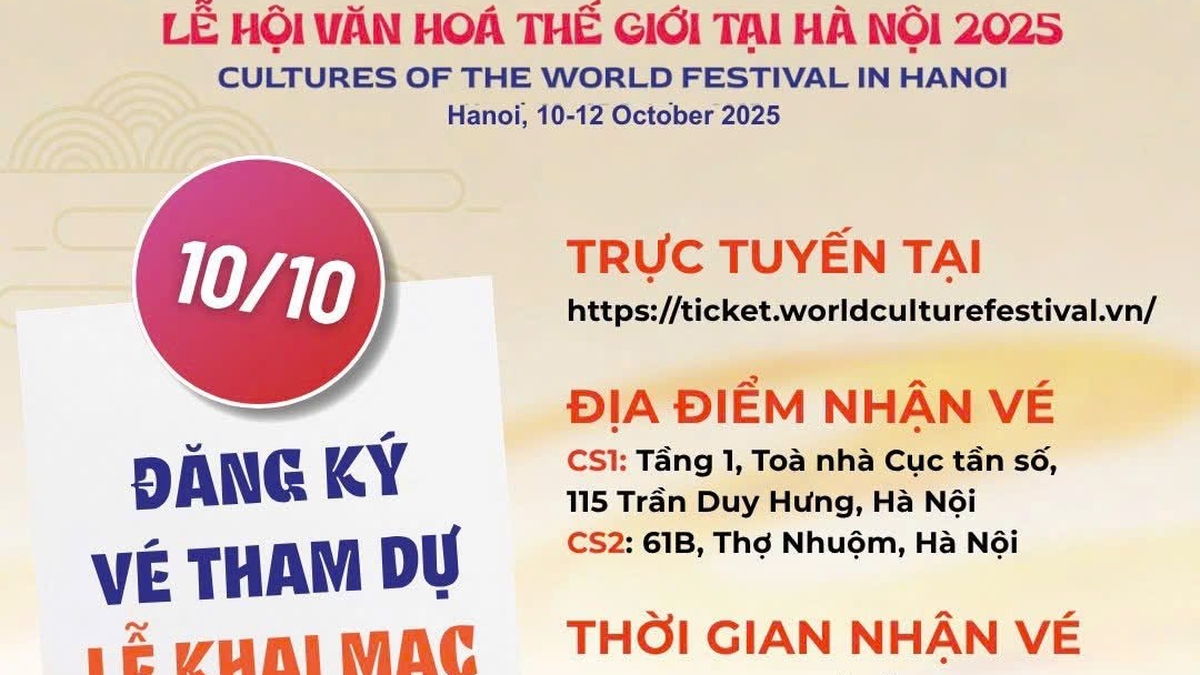


![[Photo] Prime Minister Pham Minh Chinh chairs a meeting of the Government Standing Committee on overcoming the consequences of natural disasters after storm No. 11](https://vphoto.vietnam.vn/thumb/1200x675/vietnam/resource/IMAGE/2025/10/09/1759997894015_dsc-0591-jpg.webp)
![[Photo] Prime Minister Pham Minh Chinh chairs the Conference to deploy the National Target Program on Drug Prevention and Control until 2030](https://vphoto.vietnam.vn/thumb/1200x675/vietnam/resource/IMAGE/2025/10/09/1759990393779_dsc-0495-jpg.webp)

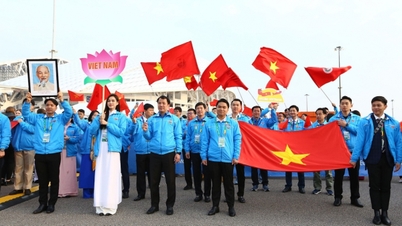

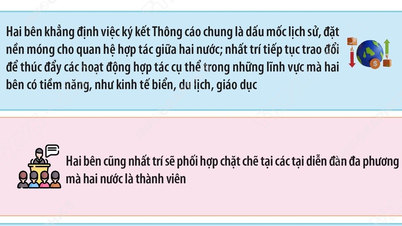



![[Photo] President visits Vietnam's Permanent Mission to the United Nations](https://vphoto.vietnam.vn/thumb/402x226/vietnam/resource/IMAGE/2025/9/24/b97c02dea2634eb38b94b1d6145671e3)




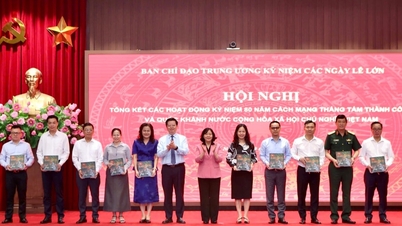


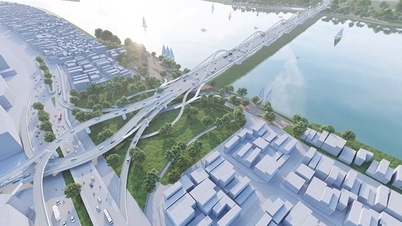

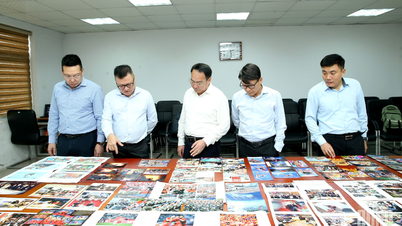

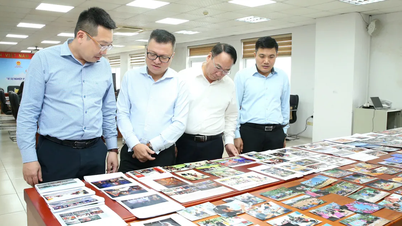














































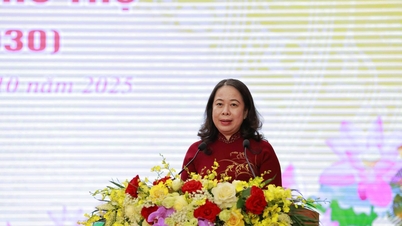

























Comment (0)